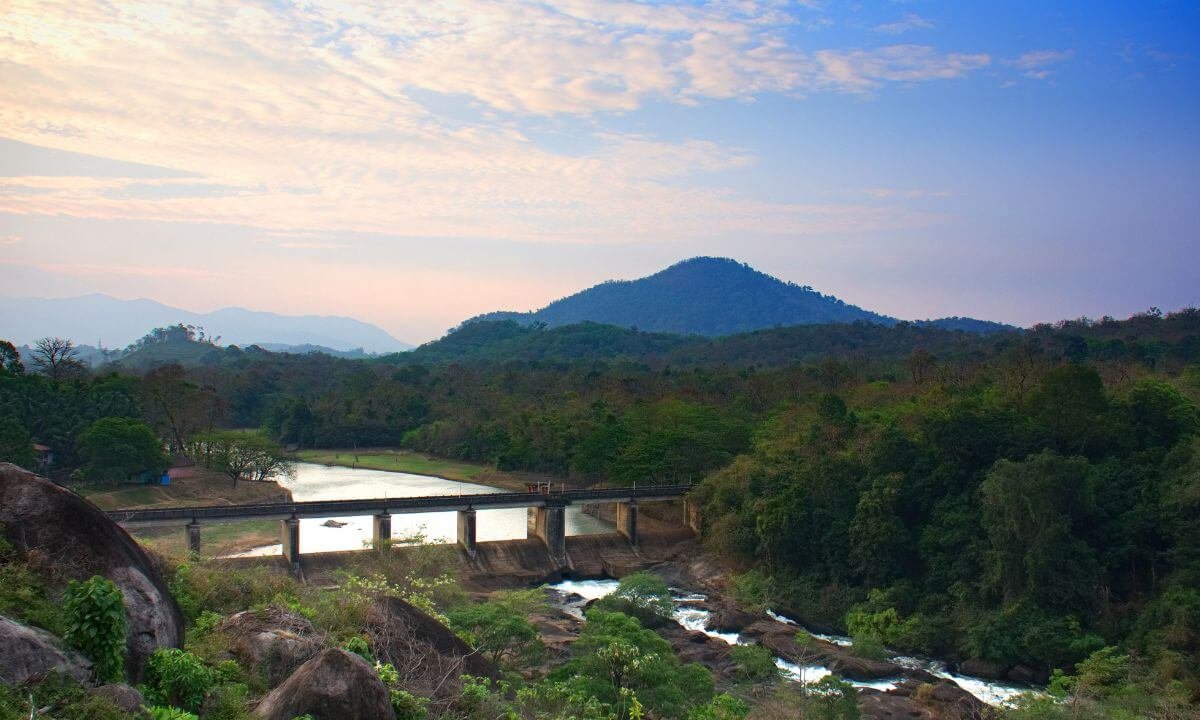Eco-Tourism Spots in India for Conscious Travellers
Eco-tourism India is no longer just a trend—it’s a movement toward conscious and responsible travel. In a country as diverse as India, where every state offers a different ecosystem and culture, sustainable travel has become essential. Whether you're an environmentalist, a culture-seeker, or a solo traveler looking for purpose, India has eco-tourism destinations that align perfectly with values of conservation and connection.
Eco-Tourism Spots in India: Travel with a Purpose
This blog explores offbeat travel India destinations that promote low-impact tourism, community participation, and authentic experiences. You’ll also discover hidden gems in India that welcome eco-conscious travelers with open arms.
1. Thenmala, Kerala – India’s First Eco-Tourism Destination
Thenmala, nestled in the Western Ghats, is India’s pioneering eco-tourism destination. Spread across forest zones and waterfalls, this area promotes nature walks, treetop huts, and cultural immersion.
Eco Highlights:
Butterfly Safari and Medicinal Garden
Boating in the Shenduruney Wildlife Sanctuary
Musical dancing fountain show using recycled water
The project is community-based, making it a model for responsible tourism.
2. Sundarbans, West Bengal – Eco-Conservation Meets Adventure
This UNESCO World Heritage Site is not just about the elusive Royal Bengal Tiger. It’s also a delicate ecosystem where eco-tourism helps conserve mangrove forests and local livelihoods.
Why Visit:
Stay in eco-resorts run by local NGOs
Join guided forest walks and birdwatching tours
Learn about local conservation efforts
This destination showcases sustainable travel in a sensitive area where nature is both wild and fragile.
3. Khonoma, Nagaland – India’s First Green Village
Tucked near Kohima, Khonoma is a Naga village that banned hunting and logging, setting a benchmark in eco-tourism India. The community-driven model emphasizes tribal traditions, organic farming, and homestays.
Experience:
Stay with Angami families
Hike to Dzukou Valley and Puliebadze
Attend agricultural and craft workshops
Khonoma is among the best hidden gems in India where sustainable living isn’t a buzzword—it’s a way of life.
4. Chopta, Uttarakhand – Mini Switzerland with a Green Soul
Chopta in the Garhwal Himalayas offers unspoiled views, clean mountain air, and zero commercialism. It’s perfect for mindful travelers who want to disconnect and reconnect.
Eco-Attractions:
Trek to Tungnath, the highest Shiva temple in the world
Stay in low-impact lodges with solar heating
Stargazing and forest bathing
It’s a superb choice for offbeat travel India lovers who want sustainability with serenity.
5. Agatti Island, Lakshadweep – Eco-Tourism in the Coral Reefs
One of the most unexplored places in India, Agatti Island is part of the Lakshadweep archipelago and is a haven for marine biodiversity.
Why It’s Special:
Coral reef conservation programs
Non-motorized water activities like kayaking and snorkeling
Stay in eco-resorts built with local materials
Tourism is tightly regulated here, preserving the fragile ecology and offering a rare, untouched island escape.
6. Kumbalangi, Kerala – India’s First Model Fishing Village
Located near Kochi, Kumbalangi blends traditional livelihood with tourism in a way that benefits both the visitor and the community.
Highlights:
Learn crab farming and coir making
Stay in backwater homestays
Witness eco-culture in action through local cuisine and craft
It’s one of India’s best examples of responsible tourism rooted in grassroots empowerment.
7. Periyar Tiger Reserve, Kerala – Conservation-Centric Travel
Instead of safaris, Periyar offers eco-tourism packages like bamboo rafting, forest trekking, and tribal village visits—all guided by trained locals.
What You’ll Love:
Community-based tourism that supports forest dwellers
Deep forest experiences in ethical and minimal-impact ways
Eco-lodges and tribal-run spice gardens
This is conservation travel at its finest.
8. Bhuj, Gujarat – The Eco-Art Experience
Post the 2001 earthquake, Bhuj transformed itself into a cultural and environmental hub. From handicraft cooperatives to solar-run homestays, Bhuj offers a truly creative kind of eco-tourism India experience.
Activities:
Visit craftspeople in Hodka and Nirona
Stay in eco-built bhungas (mud huts)
Support women-run businesses
Bhuj is ideal for travelers who believe in leaving places better than they found them.
Final Thoughts: The Rise of Eco-Tourism India
Travel with a purpose is not just about seeing new places—it’s about preserving them. Eco-tourism India is not only more rewarding for the traveler, but it also uplifts communities, protects ecosystems, and redefines what it means to be a tourist.
So, if you’re seeking unexplored places in India that align with your eco-values, these destinations are calling your name.

